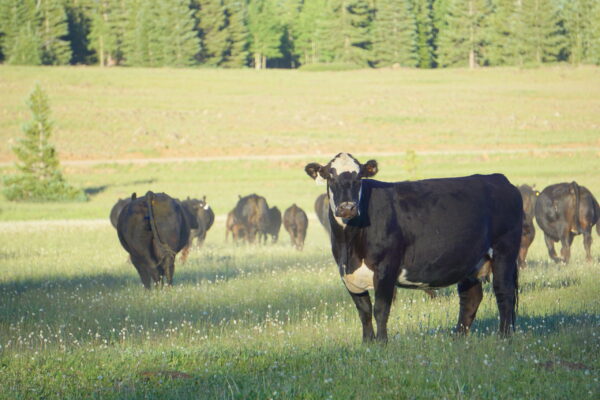On Tuesday, September 12, the Utah Inland Port Authority, or UIPA, board of directors voted unanimously to approve the Central Utah Agri-Park Project Area in Juab County.
The Agri-Park Project would be a complex project with multiple pieces, including an industrial park, rail site, and agriculture park.
And this idea began with Rural Utah farmers.
‘Small Family Agriculture Is in Big Trouble’
Last year Piute County Commissioner Darin Bushman took the preliminary idea of the Agri-Park to other counties in the Six County Association of Governments, or AOG. Millard County was the last to hear about it.
Matt Ward at the Millard County Chronicle Progress reported on the meeting, which took place in September 2022. Millard Commissioners learned from Bushman that in the beginning, the idea was essentially to find some way to save small, family farm operations in Southern Utah.
“Everything we came back to was small family agriculture is in big trouble. Corporate farming has really taken quite a bit of control,” said Bushman.
Indeed the Six County AOG and UIPA have acknowledged the “longstanding trend” of lessening processing capacity as the local food demand grows. Ranchers have been sending their beef out of the state to be processed before bringing it back here to be eaten. That’s difficult for Utah’s agriculture to keep up, and it threatens small farms’ ability to stay afloat.
Six County’s Solution
But Six County AOG officials had come up with a solution.
“We started looking at several models that would improve the profitability of local agriculture, small family agriculture,” said Bushman. “One of the models that has gained a lot of traction is … a producer to consumer model. So people can buy their food products from local producers and know where it comes from.”
Bushman talked about how Six County AOG had tried working through various avenues to get this done, and had eventually landed on a desirable location in Juab County, where there were lots of resources and infrastructure. Millard agreed to support the project.
Adding to the need to help small family agriculture, Juab County had experienced concerns over food insecurity during COVID. With clear needs and potential funding in place, Sanpete, Juab, Wayne, Piute, Sevier and Millard counties began to move forward with the project that would benefit producers throughout the state.
The Agri-Park Plan
“The Six County Agri-Park Project Area main objective is to create a better future for Utah’s family farms, economy, and food security,” UIPA wrote in a draft plan on August 11.
The draft stated that the Agri-Park Project Area would employ both rail and highway infrastructure, especially along I-15. The plan was for the area to be open to agriculture and agriculture-adjacent businesses. The park would begin just south of Nephi, with I-15 running through the middle, and end near Mills, Utah.
The Agri-Park would be involved in “production, processing, storage, and transportation of goods both within Utah and outside markets.” All new roads, rail, facilities, utilities, and supporting infrastructure were on track to be operational by 2030.
This project would have significant benefits for many economic activities in the state of Utah. Notably, it would create jobs and opportunities for farmers to stay in rural Utah communities.
“While the preliminary phases of this project are being supported by the Six County AOG, including Sanpete, Juab, Wayne, Millard, Piute and Sevier counties,” the draft read, “this Agri-Park would benefit farmers and Utahns in every county in the state.”
Hope for the Future
The Agri-Park Project comes five months after UIPA, in a major announcement, created Utah’s first ever rural inland port near Cedar City.
Hopefully these two projects will help keep farming sustainable for Rural Utahns well into the future.
As one farmer, Zack Jensen, told ksl, “I hope in 25 years when it’s my time to maybe pass on the torch to the next generation, there’s something worth being there for and worth the time (and) the effort that’s put into it. I think a good success story for the Agri-Park would be when we can go to the grocery store and you can find a stamp that says ‘grown in Utah, packaged in Utah.’”
– The Byway

